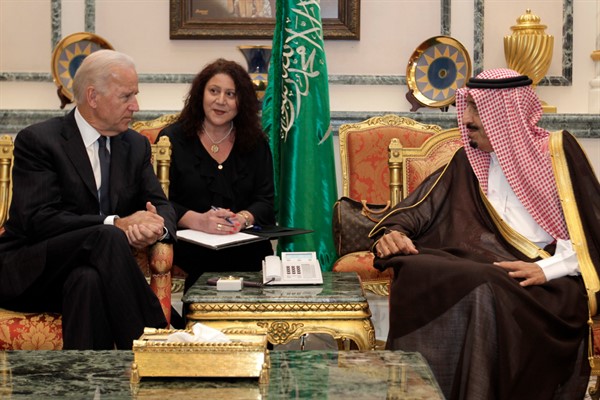Editor’s Note: Every Monday, Managing Editor Frederick Deknatel highlights a major unfolding story in the Middle East, while curating some of the best news and analysis from the region. Subscribers can adjust their newsletter settings to receive Middle East Memo by email every week.
He called Saudi Arabia a “pariah” during the presidential campaign and promised to “reassess” America’s ties with the kingdom once in office. But when that time came—with the public release last week of a U.S. intelligence report concluding that Saudi Crown Prince Mohammed bin Salman had directly ordered the murder and dismemberment of journalist Jamal Khashoggi in 2018—President Joe Biden balked. Instead of making “sure America does not check its values at the door to sell arms or buy oil,” as Biden’s campaign had pledged last year, his administration determined that the crown prince was “simply too important to American interests to punish,” as David Sanger reported in The New York Times.
The measures Biden took instead—sanctioning a former Saudi intelligence official and the covert Rapid Intervention Force that the crown prince formed to hunt down Saudi dissidents, including Khashoggi—are supposed to be proof that Biden is “recalibrating” U.S. ties with Riyadh. That is now the operative word from the White House, replacing “reassess.” The obvious question, though, is what “recalibrating” with a murderer would actually entail.

